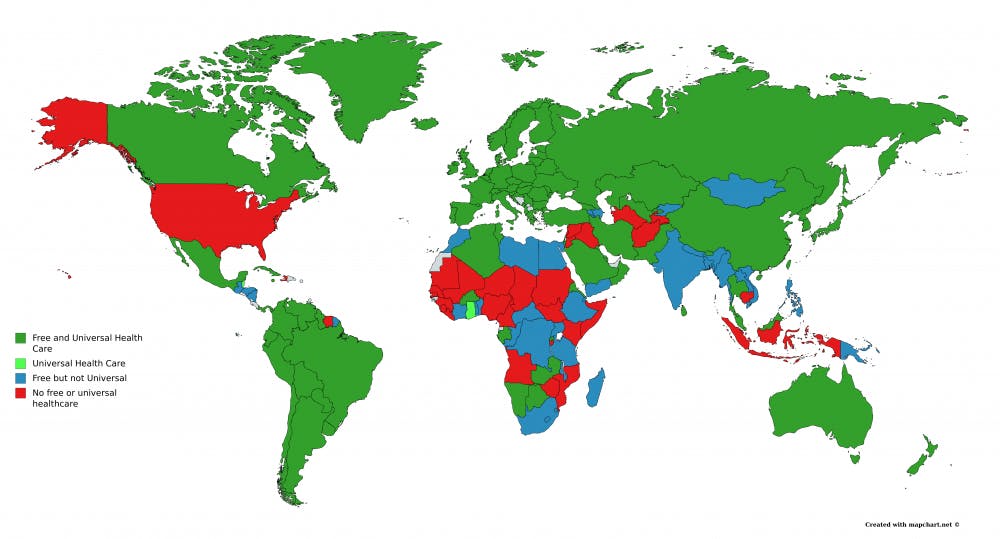The 2020 election cycle is already gearing up, and one of the questions Democratic voters must decide is whether to maintain the status quo or to continue to move to the left by nominating a progressive.
One of the issues dividing moderates and progressives is healthcare. Moderate Democrats support fixing and expanding the Affordable Care Act, while progressives are urging for a single-payer, universal healthcare system.
Some Democratic candidates for president have already embraced Medicare-for-all, including Sens. Elizabeth Warren and Kamala Harris, and Rep. Tulsi Gabbard.
The United States is the only industrialized country without universal healthcare coverage. Even many developing countries have a universal healthcare system or are actively pursuing one. Additionally, the U.S. spends more on healthcare than any other country in the world, yet we rank towards the bottom of industrialized countries in healthcare outcomes.
Among high-income countries, the U.S. has had one of the highest infant mortality rates for decades. Among industrialized countries, the U.S. also ranks low on life expectancy and obesity rates. We spend more on health care per capita than any other country, yet have some of the worst outcomes.
Private health insurance companies are beneficial to physicians and pharmaceutical companies, but historically, getting insurance through the market has not led to better public health. While physicians get incredibly good pay and pharmaceutical companies to make record profits, access to proper medical care is not equal. Income and wealth inequality exacerbates this problem.
The current U.S. healthcare system promotes inequality in treatment. For people who aren’t financially stable, the choice is often putting food on the table or going to the doctor. While hospitals in the U.S. are required to treat and stabilize everyone, many people refuse to see a doctor until it’s actually an emergency.
A Medicare-for-all system would also be beneficial to businesses. In 2015, private businesses spent over $600 billion in healthcare, and that number is projected to be as high as $1 trillion by 2025. Not only would Medicare-for-all save a lot of money for these businesses, but it would save them time as well. No longer would they have to spend time and energy on negotiating with insurance companies.
Under Medicare-for-all, the cost of healthcare would also drop. No longer would we have to pay for the bloat of private insurance companies and the profits for their investors. By taking this profit out of the equation, the cost of insuring an individual would greatly decrease.
Unsurprisingly, Medicare-for-all has met intense backlash from the Republican Party. Then-Gov. of Florida and current Sen. Rick Scott tweeted, “If you want to protect Medicare, vote Republican. If you want a socialist experiment with Medicare, by all means, vote Democrat.”
The tweet is ironic in two ways: Republicans have a long history of trying to defund Medicare, and the “socialist experiment” is currently in practice by every single other industrialized country.
Medicare-for-all is beneficial for individuals, businesses and public health. The only thing standing in the way is politicians bought by private insurance and pharmaceutical companies. In 2018, insurance companies spent over $156 million in lobbying.
Healthcare is not a privilege for the wealthy. Everyone is entitled to a happy and healthy life. Access to medical care should not be based on ability to pay, and it’s long overdue for the United States to embrace Medicare-for-all. This issue should be one of the top priorities for 2020 candidates.

By Mirarkitty - Own work, CC BY-SA 4.0










